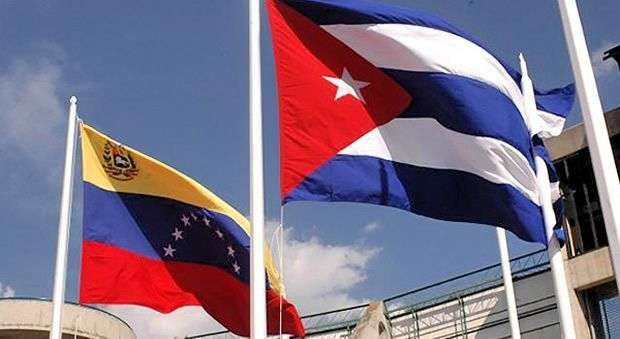Just eight days after his proclamation as president of Venezuela, Nicolas Maduro Moro traveled to Havana on April 27 to take care personally ratify the course of bilateral relations since 2004 set by the Comprehensive Cooperation Agreement , by the then presidents Fidel Castro and Hugo Chavez.
In his second trip abroad as President-previously he only had traveled to Peru for Unasur meeting-, Maduro was received as Chavez’s political successor. It was a visit that at various times evoked the memory of the late Bolivarian leader, and allows dispelling doubts about the continuity of relations between the two countries.
A team of very senior government officials from Caracas and Havana worked intensely over just two days in the signing of 51 new mutual collaborative projects and -obviously delineated – fundamental in the areas of health, education, culture and sport.
At the end of the Thirteenth Intergovernmental Commission between the two countries, Maduro confirmed that it is a “historic partnership that transcends time,” while his host, President Raul Castro, said the agreements honored the lines drawn by the Homeland Plan 2013-2019 of the Bolivarian government, bequeathed by the late Chavez. He also mentioned as a policy framework of these agreements the Guidelines of the Economic and Social Policy in Cuba and Plan projection of the economy up to 2020.
There were no short terms or improvisations. Cuba will continue to count on the contribution of a business relationship which included the purchase of oil with convenient payment formulas, while Venezuela will continue to receive in exchange professional services that will render more effective the social policies and redistribution of oil revenues in the South American. All this from a cooperation based on the principles of complementarity and sustainability.
The long illness of Hugo Chavez, and his death on March 5 gave oxygen to ominous speculations and betting by the end of a regime of slack in the relationship between the two allied governments. Many predicted, especially for Cuba, a debacle similar to those experienced in the early ’90s if the case were of retracted trade with the first partner of the Island, which in 2011 exceeded the figure of 8 billion dollars.
The signals that some read, and spread intensely, indicating a fatal future for Cuba. Other analysts, however, even from the U.S., cautiously warned that even in the most difficult scenario, today refuted by reality – the country would never be again as at the dawn of the so-called Special Period.
Richard E. Feinberg, professor of economics at the University of California, San Diego, told reporters months ago that “some people say that Chavez’s end would be the end of communism in Cuba, because the regime will collapse and the people will riot “, but” that’s probably another illusion of anti-Castro exile community. ”
Chavez died, but those predictions were not met. They could not advance the wishes of right sectors betting for victory in the elections of April 14, by the governor Capriles, who proposed removing stone by stone the economic and foreign policy of Venezuela erected in the last fourteen years.
Even the renowned Cuban-American economist Carmelo Mesa-Lago, a critic of the government of the island, predicted that “the economic crisis in Cuba would be very strong but somewhat lower than the crisis of the 90s for several reasons: the entrance of $ 2,800 million foreign tourist was meager in 1990; foreign remittances which amount is not known but it is estimated between 2-3 billion dollars, which were much lower in 1990, 350,000 Cuban-Americans visiting the island each year and spend substantial resources; Cuba also produces more oil than in 1990 but still relies on 62% of imports, and finally there is now a more diversified trade partners than in 1990 (42% with Venezuela versus 65% with the USSR). ”
Cuba remains in a tense economic situation, while applying reforms that seem slow but have not been arrested and are systemic, organic. The year 2013, now with the reaffirmation of the alliance with Venezuela, probably holds for new decisions aimed at encouraging foreign direct investment. Many analysts believe that this is a vital factor to reverse the lack of capitalization and stimulate positive growth cycles.
With Venezuela it has defined projects that will gradually transfer sovereignty to Cuba and diversify energy generation sources, providing the country with more opportunities to ease, even in conditions of permanence of the U.S. blockade, its dependence on oil imports. It is an alliance that facilitates the fish but also teaches how to fish it.










